Fact:
On April 3, 2017, the day Vladimir Putin was due to visit the city, a suicide bombing was carried out in the St. Petersburg metro, killing 15 people and injuring 64. An al-Qaeda affiliate, Imam Shamil Battalion, claimed responsibility.
Najim Laachraoui was a Belgian bomb-maker and suicide bomber in ISIS’s March 22, 2016, Brussels bombings.Claire Phipps and Matthew Weaver, “Brussels attacks: Belgian police hunt suspect captured on CCTV – live,” Guardian (London), accessed March 23, 2016, 10:19 a.m. EST, http://www.theguardian.com/world/live/2016/mar/23/brussels-attacks-police-search-airport-bomb-suspect-live?page=with:block-56f24832e4b0d8d383385b70#block-56f24832e4b0d8d383385b70. The bombings, in which terrorists targeted both Zaventem airport and Maelbeek metro station, collectively killed 32 people and wounded more than 300.“Brussels attacks: Two brothers behind Belgium bombings,” BBC News, March 23, 2016, http://www.bbc.com/news/world-europe-35879141;
Merrit Kennedy and Camila Domonoske, “The Victims Of The Brussels Attacks: What We Know,” NPR, March 31, 2016, http://www.npr.org/sections/thetwo-way/2016/03/26/471982262/what-we-know-about-the-victims-of-the-brussels-attack;
“Ibrahim and Khalid el-Bakraoui: From Bank Robbers to Brussels Bombers,” New York Times, March 24, 2016, https://www.nytimes.com/2016/03/25/world/europe/expanding-portraits-of-brussels-bombers-ibrahim-and-khalid-el-bakraoui.html?_r=0.Laachraoui was one of the two suicide bombers at Zaventem airport, alongside Ibrahim el-Bakraoui.Alissa J. Rubin, “Radicalization of a Promising Student Turned Bomb Maker in Brussels,” New York Times, April 8, 2016, https://www.nytimes.com/2016/04/09/world/europe/najim-laachraoui-paris-brussels-attacks.html?_r=0. Authorities also suspect that Laachraoui helped build explosives used in ISIS’s November 13, 2015, Paris attacks.Associated Press, “Belgian broadcaster identifies 2 suspects in attacks,” Washington Post, March 23, 2016, https://www.washingtonpost.com/world/europe/belgian-broadcaster-identifies-2-suspects-in-attacks/2016/03/23/18490138-f0c9-11e5-a2a3-d4e9697917d1_story.html?tid=a_inl;
Adam Taylor, “Who is Najim Laachraoui, suspected Islamic State bomb-maker?” Washington Post, March 23, 2016, https://www.washingtonpost.com/news/worldviews/wp/2016/03/23/who-is-najim-laachraoui-suspected-islamic-state-bomb-maker/;
Angelique Chrisafis and Jon Henley, “Brussels suicide bombers identified as police hunt suspect caught on CCTV,” Guardian (London), March 23, 2016, http://www.theguardian.com/world/2016/mar/23/brussels-suicide-bombers-named-el-barkaoui-brothers.
On the day of the Brussels attacks, Laachraoui and Ibrahim el-Bakraoui blew themselves up in the departure hall at Zaventem airport at 7:58 a.m., killing 16 people.Ibrahim and Khalid el-Bakraoui: From Bank Robbers to Brussels Bombers,” New York Times, March 24, 2016, https://www.nytimes.com/2016/03/25/world/europe/expanding-portraits-of-brussels-bombers-ibrahim-and-khalid-el-bakraoui.html?_r=0;
Robert-Jan Bartunek, “Members of Belgian Islamic State cell jailed for up to 16 years,” Reuters, July 5, 2016, http://www.reuters.com/article/us-europe-attacks-verviers-idUSKCN0ZL1L8. One other accomplice, Mohamed Abrini, fled before detonating his device.Alastair MacDonald and John Irish, “'I was a suicide bomber': Paris suspect charged in Belgium,” Reuters, March 20, 2016, http://www.reuters.com/article/us-france-shooting-abdeslam-idUSKCN0WK1KB. Khalid el-Bakraoui carried out the suicide bombing at Maelbeek metro approximately one hour later at 9:11 a.m.“Ibrahim and Khalid el-Bakraoui: From Bank Robbers to Brussels Bombers,” New York Times, March 24, 2016, https://www.nytimes.com/2016/03/25/world/europe/expanding-portraits-of-brussels-bombers-ibrahim-and-khalid-el-bakraoui.html?_r=0;
“Brussels explosions: What we know about airport and metro attacks,” BBC News, April 9, 2016, http://www.bbc.com/news/world-europe-35869985/.
On April 13, 2016, ISIS released the 14th installment of its online English magazine, Dabiq. In it, the group boasted of its deadly terrorist attacks in Belgium and eulogized four of the group’s Belgian based “martyrs,” including Laachraoui.“The Knights of Shahadah in Belgium,” Dabiq, April 13, 2016, p.7, https://azelin.files.wordpress.com/2016/04/the-islamic-state-22dacc84biq-magazine-1422.pdf. Following the release of the issue, two French journalists and former ISIS hostages—Nicolas Hénin and Pierre Torres—identified Laachraoui as one of their former captors, who, at the time of their captivity, went by the name “Abu Idris.” Laachraoui was named in Dabiq by the alias, “Abū Idrīs al-Baljīkī.”Aurelien Breeden, “ISIS Ex-Hostages Identify Brussels Suicide Bomber as Captor,” New York Times, April 22, 2016, http://www.nytimes.com/2016/04/23/world/europe/isis-ex-hostages-identify-brussels-suicide-bomber-as-captor.html. While in Syria, Laachraoui was also reportedly linked to British ISIS operative Mohammed Emwazi, known widely as “Jihadi John.”Robert Verkaik, “Revealed – Bombmaker behind Paris and Brussels terrorist attacks was a key member of Jihadi John’s beheading gang,” Daily Mail, April 19, 2016, http://www.dailymail.co.uk/news/article-3547257/Bomb-maker-Paris-Brussels-terrorist-attacks-key-member-Jihadi-John-s-beheading-gang.html. Laachraoui reportedly belonged to the ISIS cell that oversaw hostages James Foley and John Cantlie. Laahcraoui’s group handed both men over to Emwazi, who later executed Foley.Robert Verkaik, “Revealed – Bombmaker behind Paris and Brussels terrorist attacks was a key member of Jihadi John’s beheading gang,” Daily Mail (London), April 19, 2016, http://www.dailymail.co.uk/news/article-3547257/Bomb-maker-Paris-Brussels-terrorist-attacks-key-member-Jihadi-John-s-beheading-gang.html.
ISIS heaped praise upon Laachraoui, calling him “a unique man, possessing excellent manners, always in the service of his brothers, and very intelligent.”“The Knights of Shahadah in Belgium,” Dabiq, April 13, 2016, p.7, https://azelin.files.wordpress.com/2016/04/the-islamic-state-22dacc84biq-magazine-1422.pdf. ISIS claimed that Laachraoui began his hijrah (migration) in 2013, joining Syrian rebel group Majlis Shūrā al-Mujāhidīn, and staying with ISIS during the tumultuous split between ISIS and the Nusra Front. When ISIS declared its so-called caliphate in June 2014, Laachraoui was one of the first to pledge allegiance to leader Abu Bakr al-Baghdadi, according to the ISIS eulogy.“The Knights of Shahadah in Belgium,” Dabiq, April 13, 2016, p.7, https://azelin.files.wordpress.com/2016/04/the-islamic-state-22dacc84biq-magazine-1422.pdf.
ISIS went on to describe how Laachraoui participated in several ISIS battles, ultimately receiving a leg injury. The article then confirmed suspicions that Laachraoui acted as the bomb-maker for the group’s terrorist attacks in Brussels and Paris, and explains that Laachraoui left Syria in order to “realize his dream of returning to Europe to avenge the Muslims of Iraq and Sham for the constant bombing by crusader warplanes.”“The Knights of Shahadah in Belgium,” Dabiq, April 13, 2016, p.7, https://azelin.files.wordpress.com/2016/04/the-islamic-state-22dacc84biq-magazine-1422.pdf.
In addition to the March 2016 attacks in Belgium, Laacharoui is also tied to the November 2015 ISIS attacks in Paris, which targeted restaurants, cafes, a sports stadium, and a concert hall, killing 130 and wounding 350. According to intelligence officials, Laachraoui’s DNA was found on several suicide belts used by ISIS assailants during the coordinated Paris gun and bomb attacks.Associated Press, “Belgian broadcaster identifies 2 suspects in attacks,” Washington Post, March 23, 2016, https://www.washingtonpost.com/world/europe/belgian-broadcaster-identifies-2-suspects-in-attacks/2016/03/23/18490138-f0c9-11e5-a2a3-d4e9697917d1_story.html?tid=a_inl. The morning of the Paris attacks, a taxi picked up Laachraoui and two others from a house in Schaerbeek where police later found more than 30 pounds of explosives.Alissa J. Rubin, “Radicalization of a Promising Student Turned Bomb Maker in Brussels,” New York Times, April 8, 2016, https://www.nytimes.com/2016/04/09/world/europe/najim-laachraoui-paris-brussels-attacks.html. Laachraoui’s DNA was also found in a house in the small town of Auvelais, Belgium, raided by Belgian police following the November 2015 ISIS attacks.Adam Taylor, “Who is Najim Laachraoui, suspected Islamic State bomb-maker?” Washington Post, March 23, 2016, https://www.washingtonpost.com/news/worldviews/wp/2016/03/23/who-is-najim-laachraoui-suspected-islamic-state-bomb-maker/. Laachraoui’s DNA has also allegedly been found near the central Belgian city of Namur, and at a suspected hideout in the Brussels neighborhood of Schaerbeek.Angelique Chrisafis and Jon Henley, “Brussels suicide bombers identified as police hunt suspect caught on CCTV,” Guardian (London), March 23, 2016, http://www.theguardian.com/world/2016/mar/23/brussels-suicide-bombers-named-el-barkaoui-brothers.
Laachraoui is believed to be a returned foreign fighter from Syria. Born in Morocco, Laachraoui grew up in Schaerbeek, Belgium, where he reportedly attended a Catholic high school and studied electromechanical engineering.Adam Taylor, “Who is Najim Laachraoui, suspected Islamic State bomb-maker?” Washington Post, March 23, 2016, https://www.washingtonpost.com/news/worldviews/wp/2016/03/23/who-is-najim-laachraoui-suspected-islamic-state-bomb-maker/. In high school, Laachraoui wrote that he hoped Islam would not be judged too harshly for its views on slavery and stoning. According to his teachers, Laachraoui began to wear traditional Salafist Islamic clothes during his senior year and began refusing physical contact with women. After high school, Laachraoui enrolled in the Université Libre de Bruxelles, but dropped out after a year. He enrolled in another school but also soon dropped out. According to court records, Laachraoui fell under the influence of a street preacher named Khalid Zerkani, who is imprisoned in Belgium for recruiting young men to jihadist causes in Syria.Alissa J. Rubin, “Radicalization of a Promising Student Turned Bomb Maker in Brussels,” New York Times, April 8, 2016, https://www.nytimes.com/2016/04/09/world/europe/najim-laachraoui-paris-brussels-attacks.html. According to the Belgian prosecutor’s office, Laachraoui traveled to Syria in February 2013. By 2015, however, he had returned to Europe.Adam Taylor, “Who is Najim Laachraoui, suspected Islamic State bomb-maker?” Washington Post, March 23, 2016, https://www.washingtonpost.com/news/worldviews/wp/2016/03/23/who-is-najim-laachraoui-suspected-islamic-state-bomb-maker/.
In September 2015, Laachraoui reportedly traveled to Hungary with Paris attacks suspect Salah Abdeslam.Matthew Weaver, “Third ‘suspect’ named,” Guardian (London), March 23, 2016, 7:51 EDT, http://www.theguardian.com/world/live/2016/mar/23/brussels-attacks-police-search-airport-bomb-suspect-live?page=with:block-56f24832e4b0d8d383385b70#block-56f24832e4b0d8d383385b70. At a border stop between Austria and Hungary, Laachraoui reportedly presented fake identification documents using the name “Soufiane Kayal.”Adam Taylor, “Who is Najim Laachraoui, suspected Islamic State bomb-maker?” Washington Post, March 23, 2016, https://www.washingtonpost.com/news/worldviews/wp/2016/03/23/who-is-najim-laachraoui-suspected-islamic-state-bomb-maker/. A call intercepted by Belgian investigators indicates that two men—one of whom used the false name “Soufiane Kayal”—were senior ISIS operatives who directed the Paris attacks from Brussels.Paul Cruickshank, “Paris attacks: Directives came from operatives in Brussels, investigators say,” CNN, January 7, 2016, http://www.cnn.com/2016/01/07/europe/paris-attacks-brussels-operatives/.
One of two suicide bombers in the March 22, 2016 terror attack in Brussels, Belgium, that killed 32 people and wounded over 300.
Laptop contained audio tapes by Osama bin Laden and former AQAP recruiter Anwar al-Awlaki.
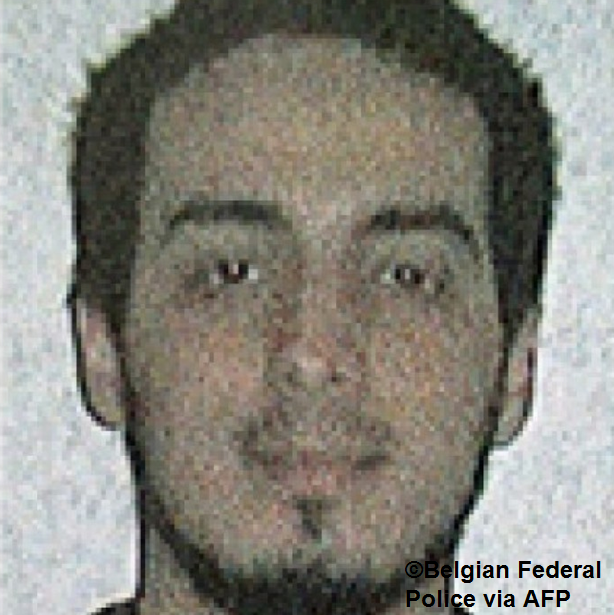
Salah Abdeslam is the sole surviving member of the group of terrorists who carried out the deadly ISIS attacks in Paris, France, on November 13, 2015.Alastair MacDonald and John Irish, “‘I was a suicide bomber’: Paris suspect charged in Belgium,” Reuters, March 20, 2016, http://www.reuters.com/article/us-france-shooting-abdeslam-idUSKCN0WK1KB; “The Latest: Abdeslam, accomplice guilty of attempted murder,” Associated Press, April 24, 2018, https://www.apnews.com/17fd96e2b3664a77b59cdf256609947c/The-Latest:-Abdeslam,-accomplice-guilty-of-attempted-murder. The attackers targeted public venues scattered throughout Paris, killing 130 people and wounding 350 others. Abdeslam was arrested in Belgium on March 18, 2016, and was extradited to France on April 27, 2016. He was found guilty of terrorism and murder charges in June 2022.Aurelien Breeden, “Salah Abdeslam, Suspect in Paris Attacks, Is Extradited to France,” New York Times, April 27, 2016, http://www.nytimes.com/2016/04/28/world/europe/salah-abdeslam-paris-attacks-suspect-extradited-to-france.html. Abdeslam was transferred to Belgium on July 14, 2022, to face new charges regarding his involvement in the March 2016 Brussels bombings that killed 32 individuals.Simon Rushton, “Convicted Paris terrorist faces trial for attack in Belgium,” The National, July 14, 2022, https://www.thenationalnews.com/world/europe/2022/07/14/convicted-paris-terrorist-faces-trial-for-attack-in-belgium. Abdeslam and seven others were convicted on July 25, 2023.Paul Kirby, “Brussels bombers found guilty after long murder trial,” BBC News, July 25, 2023, https://www.bbc.com/news/world-europe-66299186; Belgian court finds eight guilty of murder over 2016 Brussels bombings,” Reuters, July 25, 2023, https://www.reuters.com/world/europe/belgian-court-finds-eight-guilty-murder-over-2016-brussels-bombings-2023-07-25/; Nicolas Camut, “8 men found guilty of 2016 Brussels terrorist attacks,” Politico, July 25, 2023, https://www.politico.eu/article/8-men-found-guilty-of-2016-brussels-terrorist-attacks/.
A gray Volkswagen Polo rented in Belgium under Abdeslam’s name was found near the scene of the carnage at Paris’s Bataclan concert hall, where gunmen randomly fired on concert-goers with automatic weapons during a performance by an American rock band.“The Expanding Web of Connections Among the Paris Attackers,” New York Times, last updated December 9, 2015, http://www.nytimes.com/interactive/2015/11/15/world/europe/manhunt-for-paris-attackers.html. Despite a massive manhunt following the attacks, Abdeslam managed to evade capture by European authorities, allegedly with the help of friends and family as well as a network of extremist accomplices.“The Expanding Web of Connections Among the Paris Attackers,” New York Times, last updated December 9, 2015, http://www.nytimes.com/interactive/2015/11/15/world/europe/manhunt-for-paris-attackers.html.
Abdeslam’s brother Ibrahim Abdeslam also participated in the ISIS attacks in Paris, dying after detonating his suicide vest at a restaurant a mile away from the stadium attack.“The Expanding Web of Connections Among the Paris Attackers,” New York Times, last updated December 9, 2015, http://www.nytimes.com/interactive/2015/11/15/world/europe/manhunt-for-paris-attackers.html. Salah and Ibrahim Abdeslam reportedly owned a bar together in the Brussels suburb of Molenbeek, which they sold six weeks before the Paris attacks.David A. Graham, “Who is Salah Abdeslam?” Atlantic, March 18, 2016, https://www.theatlantic.com/international/archive/2016/03/salah-abdeslam-paris-attacks-arrest-belgium/474453/. According to another brother, Mohamed Abdeslam, Salah Abdeslam became a more devout Muslim in the months before the attack, and stopped smoking and drinking.James McAuley, Griff Witte, and Michael Birnbaum, “Key suspect in Paris attacks captured in Brussels raid; four others arrested,” Washington Post, March 18, 2015, https://www.washingtonpost.com/world/europe/european-officials-key-figure-in-paris-attacks-wounded-in-brussels-raid/2016/03/18/b0327da6-ed29-11e5-a9ce-681055c7a05f_story.html.
After four months of evading European law enforcement, Belgian police arrested Salah Abdeslam on March 18, 2016, in the now notorious Brussels suburb of Molenbeek where he was raised.“Salah Abdeslam arrêté à Molenbeek, les opérations toujours en cours (direct vidéo),” Le Soir (Brussels), March 18, 2016, http://www.lesoir.be/1155105/article/actualite/belgique/2016-03-18/salah-abdeslam-arrete-molenbeek-operations-toujours-en-cours-direct-video. On March 15, 2016, Belgian police raided an apartment in the Brussels suburb of Forest and engaged in a gun battle with extremists, killing an Algerian radical named Mohamed Belkaid. Four police officers were wounded in the firefight.Julian E. Barnes and Valentina Pop, “Captured Paris Terror Suspect Salah Abdeslam Says He Planned More Attacks,” Wall Street Journal, March 21, 2016, http://www.wsj.com/articles/arrested-paris-terror-suspect-salah-abdeslam-says-he-planned-more-attacks-1458499173; Matthias Verbergt, “Belgian Authorities Find Islamic State Flag in Apartment After Gunbattle,” Wall Street Journal, last updated March 16, 2016, https://www.wsj.com/articles/belgian-authorities-find-islamic-state-flag-in-apartment-after-gunbattle-1458129245. Abdeslam’s fingerprints were later discovered in the apartment. Police believe that Abdeslam was one of two suspects who evaded police that day, the other being a Syrian-trained fighter using the name “Amine Choukry.” Three days later, police discovered Abdeslam at a Molenbeek apartment after tracing a reactivated phone that had been used during the November Paris attacks.James McAuley, Michael Birnbaum and Souad Mekhennet, “Capture of Paris terror suspect in Brussels unfolded over several watchful days,” Washington Post, March 19, 2016, https://www.washingtonpost.com/world/europe/fallout-of-arrest-in-belgium-of-paris-terror-suspect/2016/03/19/13d56ede-ed4f-11e5-a9ce-681055c7a05f_story.html?hpid=hp_hp-top-table-main_belgium-0625am%3Ahomepage%2Fstory. Large food orders to the residence supported police suspicions that more people were living there than officially documented.James McAuley, Michael Birnbaum and Souad Mekhennet, “Capture of Paris terror suspect in Brussels unfolded over several watchful days,” Washington Post, March 19, 2016, https://www.washingtonpost.com/world/europe/fallout-of-arrest-in-belgium-of-paris-terror-suspect/2016/03/19/13d56ede-ed4f-11e5-a9ce-681055c7a05f_story.html?hpid=hp_hp-top-table-main_belgium-0625am%3Ahomepage%2Fstory. On March 18, Abdeslam was captured after he burst from an apartment building on Rue des Quatre-Vents, near Abdeslam’s family’s home. Police shot Abdeslam in the leg while he was attempting to run away.Alissa J. Rubin and Aurelien Breeden, “Paris Attacks Suspect, Salah Abdeslam, Is Captured in Brussels,” New York Times, March 18, 2016, http://www.nytimes.com/2016/03/19/world/europe/salah-abdeslam-belgium-apartment.html.
Abdeslam has a history of involvement in criminal activity. In 2010, he was arrested on robbery charges and served time in prison with his childhood friend and fellow Paris gunman Abdelhamid Abaaoud.Samuel Osborne, Caroline Mortimer, “Salah Abdeslam: World's most-wanted fugitive and last surviving Paris attacker captured in Brussels by police,” Independent (London), March 18, 2016, http://www.independent.co.uk/news/world/europe/paris-attacks-suspect-salah-abdeslam-shot-and-wounded-in-brussels-anti-terror-raid-a6939216.html. According to his ex-girlfriend, Abdeslam appeared to radicalize in 2014 after Abaaoud returned from Syria, where he had fought for ISIS and was filmed in propaganda videos.Avi Davis,” Salah Abdeslam: From petty crime to IS group terrorism,” March 19, 2016, France 24, http://www.france24.com/en/20160319-salah-abdeslam-what-we-know. Both Abdeslam and Abaaoud grew up in Molenbeek, a neighborhood associated with an impressive roster of violent extremists, including suspected August 2015 train assailant Ayoub El Khazzani and May 2014 Brussels Jewish Museum shooter Mehdi Nemmouche.Liam Stack, “How Belgium Became Home to Recent Terror Plots,” New York Times, November 15, 2015, http://www.nytimes.com/interactive/2015/11/15/world/europe/belgium-terrorism-suspects.html; Tim Hume, “Brussels raids: Police hit Molenbeek, area at heart of Belgium's jihadist threat,” CNN, November 16, 2015, http://www.cnn.com/2015/11/15/europe/paris-attacks-belgium-molenbeek/. Former Belgian Prime Minister Charles Michel called for a crackdown on violent extremists in Molenbeek, saying, “Almost every time, there is a link to Molenbeek.”Robert Jan Bartunek and Alastair MacDonald, “Guns, God and grievances - Belgium's Islamist ‘airbase,’” Reuters, November 16, 2015, http://www.reuters.com/article/us-france-shooting-belgium-guns-insight-idUSKCN0T504J20151116. In 2015, the then mayor of Molenbeek called the suburb “a breeding ground for violence.”Robert Jan Bartunek and Alastair MacDonald, “Guns, God and grievances - Belgium's Islamist ‘airbase,’” Reuters, November 16, 2015, http://www.reuters.com/article/us-france-shooting-belgium-guns-insight-idUSKCN0T504J20151116.
Abdeslam is one of two Paris suspects who escaped Paris alive following the attacks, the other being alleged attacks coordinator Abaaoud. Abaaoud managed to evade an extensive manhunt for days following the attacks and was ultimately killed in a shootout with police on November 18, 2015, in the Paris suburb of St. Denis.Aurelien Breeden and Kimiko de Freytas-Tamura, “Chief Suspect in Paris Attacks Died in Raid, France Says,” New York Times, November 19, 2015, http://www.nytimes.com/2015/11/20/world/europe/paris-attacks.html.
A call intercepted by Belgian investigators indicated that two men—using the false names “Soufiane Kayal” and “Samir Bouzid”—were senior ISIS operatives who directed the Paris attacks from Brussels.Paul Cruickshank, “Paris attacks: Directives came from operatives in Brussels, investigators say,” CNN, January 7, 2016, http://www.cnn.com/2016/01/07/europe/paris-attacks-brussels-operatives/. Authorities believed the man who went by the name “Samir Bouzid” to be “Mohamed Belkaid,” the Algerian suspect killed by Belgian police during the March 15, 2016, raid in Brussels.Alissa J. Rubin and Aurelien Breeden, “Paris Attacks Suspect, Salah Abdeslam, Is Captured in Brussels,” New York Times, March 18, 2016, http://www.nytimes.com/2016/03/19/world/europe/salah-abdeslam-belgium-apartment.html. One other suspect—a man who went by the aliases “Amine Choukri” and “Monir Ahmed Alaaj”—was arrested alongside Abdeslam on March 18, 2016.Alastair MacDonald and John Irish, “'I was a suicide bomber': Paris suspect charged in Belgium,” Reuters, March 20, 2016, http://www.reuters.com/article/us-france-shooting-abdeslam-idUSKCN0WK1KB This suspect would later be identified as Sofien Ayari, a Tunisian who had also been in the apartment during the March 15 shootout with police. Ayari was charged with attempted murder for his role in the gun battle.Dan Alexe, “Paris attacks suspect Abdeslam gets 20 years in Belgium for attempted murder,” New Europe, April 23, 2018, https://www.neweurope.eu/article/paris-attacks-suspect-abdeslam-gets-20-years-in-belgium-for-attempted-murder/; Alissa J. Rubin and Milan Schreuer, “Sole Surviving Suspect in Paris Attacks Stands Trial in Belgium,” New York Times, February 5, 2018, https://www.nytimes.com/2018/02/05/world/europe/salah-abdeslam-trial-belgium.html.
Abdeslam was extradited to France on April 27, 2016, on charges of murder connected to terrorism, participation in a terrorist conspiracy, and possession of weapons and explosives.Aurelien Breeden, “Salah Abdeslam, Suspect in Paris Attacks, Is Extradited to France,” New York Times, April 27, 2016, http://www.nytimes.com/2016/04/28/world/europe/salah-abdeslam-paris-attacks-suspect-extradited-to-france.html. Abdeslam was reportedly held in solitary confinement and under 24-hour suicide watch at the Fleury-Mérogis prison, south of Paris.Jennifer Rankin, “Paris attack suspect Salah Abdeslam refuses to answer questions at trial,” Guardian (London), February 5, 2018, https://www.theguardian.com/world/2018/feb/05/paris-attacks-suspect-salah-abdeslam-goes-on-trial-over-brussels-shootout.
French authorities returned Abdeslam to Brussels on February 5, 2018, to face trial on charges of attempted murder in relation to the March 2016 shootout with police.Jennifer Rankin, “Paris attack suspect Salah Abdeslam refuses to answer questions at trial,” Guardian (London), February 5, 2018, https://www.theguardian.com/world/2018/feb/05/paris-attacks-suspect-salah-abdeslam-goes-on-trial-over-brussels-shootout. During the first day of the Belgian trial, Abdeslam claimed that he had already been judged “mercilessly” because he is Muslim.Alissa J. Rubin and Milan Schreuer, “Sole Surviving Suspect in Paris Attacks Stands Trial in Belgium,” New York Times, February 5, 2018, https://www.nytimes.com/2018/02/05/world/europe/salah-abdeslam-trial-belgium.html. For the remainder of the trial, he refused to cooperate with the court, and reportedly did not speak to prosecutors or even his own lawyers. An agreement between French and Belgian authorities would have resulted in Abdeslam shuttling between the court and a prison across the border in France so he could remain in French custody.“Salah Abdeslam trial: Paris attacks suspect lambasts ‘anti-Muslim bias,’” BBC News, February 5, 2018, http://www.bbc.com/news/world-europe-42940636. However, Abdeslam refused to appear in the Brussels court after the first day and so remained in his French prison cell for the duration of the trial.Erin McLaughlin and Hilary Clarke, “Paris suspect Saleh Abdeslam jailed for 20 years over police shootout,” CNN, April 23, 2018, https://www.cnn.com/2018/04/23/europe/paris-suspect-saleh-abdeslam-jailed-beligium---intl/index.html.
On April 23, 2018, Abdeslam was found guilty of attempted murder in a “terrorist context” for involvement in the March 15, 2016, shootout that injured four police officers prior to his capture. Abdeslam and co-defendant Ayarai both received the maximum 20-year prison sentence.Erin McLaughlin and Hilary Clarke, “Paris suspect Saleh Abdeslam jailed for 20 years over police shootout,” CNN, April 23, 2018, https://www.cnn.com/2018/04/23/europe/paris-suspect-saleh-abdeslam-jailed-beligium---intl/index.html. Abdeslam was not present in the court during the reading of the verdict.Erin McLaughlin and Hilary Clarke, “Paris suspect Saleh Abdeslam jailed for 20 years over police shootout,” CNN, April 23, 2018, https://www.cnn.com/2018/04/23/europe/paris-suspect-saleh-abdeslam-jailed-beligium---intl/index.html.
On September 8, 2021, French authorities began a trial at Paris’s Palais de Justice courthouse with almost 1,800 plaintiffs pressing charges against Abdeslam and 19 other defendants. The other 19 defendants—six of whom were to be tried in absentia—faced charges ranging from being accomplices to murder and hostage-taking to helping plan the 2015 attacks. Abdeslam appeared in court dressed in black and wearing a black face mask, which he removed when questioning began. When asked to identify himself, Abdeslam instead recited the Islamic declaration of faith that Allah is God and Muhammad is his servant. Abdeslam told the court he gave up his day job “to become an Islamic State soldier.”Tangi Salaün and Yiming Woo, “Main suspect tells Paris attacks trial he’s ‘an Islamic State soldier,’” Reuters, September 8, 2021, https://www.reuters.com/world/europe/security-high-paris-2015-jihadist-attacks-trial-begins-2021-09-07/. Abdeslam also shouted at the presiding judge that he and other defendants had been treated “like dogs.”Tangi Salaün and Yiming Woo, “Main suspect tells Paris attacks trial he’s ‘an Islamic State soldier,’” Reuters, September 8, 2021, https://www.reuters.com/world/europe/security-high-paris-2015-jihadist-attacks-trial-begins-2021-09-07/; Aurelien Breeden, “Trial Begins Over November 2015 Paris Terrorist Attacks,” New York Times, September 8, 2021, https://www.nytimes.com/2021/09/08/world/europe/paris-terror-attacks-trial.html. On the second day of the trial, the presiding judge briefly suspended the trial after Abdeslam repeatedly attempted to make political statements during a discussion on which victims’ representatives would participate during the trial.“Paris attacks trial disrupted after main defendant defies judge,” Reuters, September 9, 2021, https://www.reuters.com/world/europe/paris-attacks-trial-disrupted-after-main-defendant-defies-judge-2021-09-09/.
Abdeslam made his first statement on his motivation behind the Bataclan attack on September 16, 2021. Abdeslam told a French court that the deaths of the Bataclan attack victims were “nothing personal,” and that the killings were a response to French airstrikes in Syria and Iraq.“Paris attacks suspect Salah Abdeslam tells court the deaths of 130 people were 'nothing personal'” Sky News, September 16, 2021, https://news.sky.com/story/paris-attacks-suspect-salah-abdeslam-tells-court-the-deaths-of-130-people-were-nothing-personal-12408861.
On June 10, 2022, French prosecutors recommended that Abdeslam serve a life sentence without possibility for parole, a sentence that has rarely been handed out by French courts. In that scenario, the possibility of a reduced sentence will only be considered once Abdeslam serves 30 years, after which a judge can determine whether to grant parole under certain circumstances. Judges are expected to deliver a verdict later in June 2022.Nick Kostov, “French Prosecutors Seek Life in Prison for Key Participant in 2015 Paris Terrorist Attack,” Wall Street Journal, June 10, 2022, https://www.wsj.com/articles/french-prosecutors-seek-life-in-prison-for-key-participant-in-2015-paris-terrorist-attack-11654882989?mod=world_major_2_pos1&utm_source=iterable&utm_. On June 29, 2022, the court found Abdeslam guilty of murder and terrorism charges. He was subsequently sentenced to life in prison. All but one of the 19 other defendants were also found guilty.George Bowden, “Paris attacks: Surviving suspect Salah Abdeslam found guilty,” BBC News, June 29, 2022, https://www.bbc.com/news/world-europe-61989354. On July 12, 2022, a Paris appeals court released a statement that Abdelsam did not appeal his sentence or guilty verdict, making him ineligible for a second trial.Mimosa Spencer, “No appeal from Bataclan suspect, closing chapter on 2015 Paris attacks,” Reuters, July 12, 2022, https://www.reuters.com/world/europe/no-appeal-bataclan-suspect-closing-chapter-2015-paris-attacks-2022-07-12/.
Abdeslam was transferred to Belgium on July 14, 2022, to face new charges regarding his alleged involvement in the March 2016 bombings. These attacks, which occurred at Brussels’ Zaventem airport and the city’s Maelbeek metro station, killed 32 individuals and were carried out by the same cell as the attacks in Paris.Simon Rushton, “Convicted Paris terrorist faces trial for attack in Belgium,” The National, July 14, 2022, https://www.thenationalnews.com/world/europe/2022/07/14/convicted-paris-terrorist-faces-trial-for-attack-in-belgium.
On September 12, 2022, Abdeslam and eight other suspected jihadists appeared at a Brussels court where they faced charges for their connection to the March 2016 Brussels bombings. Another suspect, Oussama Atar, had presumably been killed in Syria and was to be tried in absentia. Abdeslam refused to take the stand as he claimed the glass-enclosed cubicles used in the trial prevented the defendants from being able to effectively speak with their lawyers.Agence France-Presse, “Brussels bombing accused Salah Abdeslam refuses to take stand,” Al Arabiya, September 12, 2022, https://english.alarabiya.net/News/world/2022/09/12/Brussels-bombing-accused-Salah-Abdeslam-refuses-to-take-stand; Agence France-Presse, “Brussels Bombing Accused Abdeslam Denounces ‘Unfair’ Trial,” Barron’s, September 12, 2022, https://www.barrons.com/news/brussels-bombing-accused-abdeslam-denounces-unfair-trial-01662984007. On July 25, 2023, the court found Abdeslam and seven others guilty of murder and attempted murder in the 2016 attacks. The court also convicted Atar, Osama Krayem, Ali El Haddad Asufi, Bilal El Makhoukhi, and Mohamed Abrini, a childhood friend of Abdeslam’s whose explosives failed to detonate at the Brussels airport. Two men, a Tunisian and a Rwandan, were cleared of murder but were convicted of taking part in terrorist activities, along with the other six. Brothers Smail and Ibrahim Farisi were cleared of all charges. The sentencing phase of the trial is expected to begin in September 2023.Paul Kirby, “Brussels bombers found guilty after long murder trial,” BBC News, July 25, 2023, https://www.bbc.com/news/world-europe-66299186; Belgian court finds eight guilty of murder over 2016 Brussels bombings,” Reuters, July 25, 2023, https://www.reuters.com/world/europe/belgian-court-finds-eight-guilty-murder-over-2016-brussels-bombings-2023-07-25/; Nicolas Camut, “8 men found guilty of 2016 Brussels terrorist attacks,” Politico, July 25, 2023, https://www.politico.eu/article/8-men-found-guilty-of-2016-brussels-terrorist-attacks/.
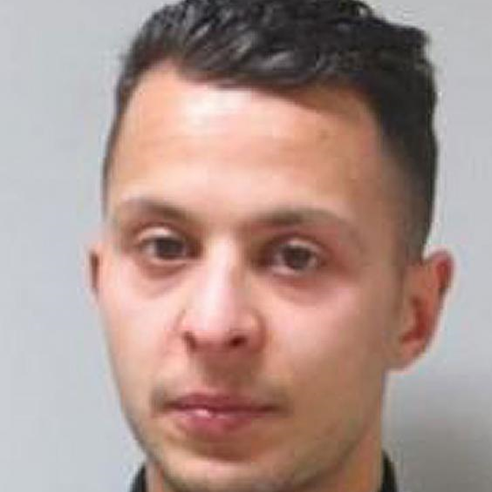
Miguel Moran Diaz is a convicted felon for drug-related crimes and a self-described “Lone Wolf” hopeful for ISIS. According to court documents, Diaz actively sought to possess firearms in preparation for an attack on U.S. soil. After his arrest in Miami, Florida, in April 2015, Diaz pled guilty to possession of a firearm as a felon and, in July 2015, was sentenced to the maximum 10 years in prison for the offence.“Miami Resident and ISIL Sympathizer Sentenced to 10 Years in Prison for Illegally Possessing a Firearm,” Federal Bureau of Investigation, July 28, 2015, https://www.fbi.gov/miami/press-releases/2015/miami-resident-and-isil-sympathizer-sentenced-to-10-years-in-prison-for-illegally-possessing-a-firearm.
Before his arrest, Diaz met repeatedly with a confidential FBI informant to whom Diaz revealed his intentions to go on a mass shooting spree in the name of ISIS. Diaz claimed that he had a collapsible rifle that he could smuggle into a stadium undetected. He also revealed his intention to carve “ISIS” into shell casings so that after he went on a killing spree, authorities could find the casings and put the city on lockdown while they attempted to find the sniper.“Miami Resident and ISIL Sympathizer Sentenced to 10 Years in Prison for Illegally Possessing a Firearm,” Federal Bureau of Investigation, July 28, 2015, https://www.fbi.gov/miami/press-releases/2015/miami-resident-and-isil-sympathizer-sentenced-to-10-years-in-prison-for-illegally-possessing-a-firearm.
Before his arrest and conviction, Diaz was self-employed in Miami, working as a driver for Uber as well as in construction.Dan Krauth, “‘Pretty Scared’: Neighbors Speak About Miami Man Who Claimed ISIS Sympathy,” NBC 6, April 30, 2015, http://www.nbcmiami.com/news/local/Pretty-Scared-Neighbors-Speak-About-Miami-Man-Who-Claimed-ISIS-Sympathy-301988931.html.
Sought to carry out a terror attack on U.S. soil. Pled guilty to possession of a firearm as a felon and in July 2015, was sentenced to 10 years in prison.
Viewed AQAP’s Inspire on his cell phone and showed an FBI undercover informant detailed instructions from the magazine on how to build a bomb.
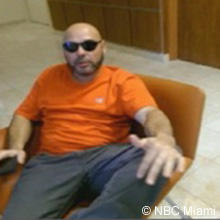
Alexander Ciccolo is an American citizen from Adams, Massachusetts, convicted of attempting to provide material support to ISIS. He is the son of a Boston police captain, Robert Ciccolo, who was responsible for alerting the FBI about his son's activities.Pete Williams and Tracy Connor, “Alexander Ciccolo, Boston Cop’s Son, Busted for Alleged Terror Plot,” NBC News, July 14, 2015, http://www.nbcnews.com/news/us-news/boston-cops-son-alexander-ciccolo-busted-alleged-terror-plot-n391246 Ciccolo was arrested in an FBI sting operation in western Massachusetts on July 4, 2015, after purchasing four weapons from an undercover FBI operative. After his arrest, he reportedly reaffirmed his support for ISIS.“Government’s Memorandum in Support of Its Motion to Detain Alexander Ciccolo,” United States District Court District of Massachuetts, July 13, 2015, http://www.justice.gov/opa/file/629331/download. Ciccolo pled guilty in May 2018 and was sentenced to 20 years in prison that September.“Boston police captain’s son gets 20 years for terror plot,” Associated Press, September 6, 2018, https://www.apnews.com/c6c6e6669b3a47bb91ace7f8ab61078b/Boston-police-captain's-son-gets-20-years-for-terror-plot.
A former peace activist who participated in a “peace walk” in 2012, Ciccolo reportedly turned on his father and other family members who were also police officers.Brian Ross, Michele McPhee, and Brian Epstein, “Alexander Ciccolo, Cop’s Son Arrested in Alleged Terror Plot, Appears in Court,” ABC News, July 14, 2015, http://abcnews.go.com/US/accused-terrorist-son-cop-expected-court/story?id=32438388. He converted to Islam, reportedly becoming “obsessed” with the religionPete Williams and Tracy Connor, “Alexander Ciccolo, Boston Cop’s Son, Busted for Alleged Terror Plot,” NBC News, July 14, 2015, http://www.nbcnews.com/news/us-news/boston-cops-son-alexander-ciccolo-busted-alleged-terror-plot-n391246. and was reportedly inspired by the Tunisian beach bomb attacks and Boston Marathon bomb attacks. Ciccolo used the alias “Ali Al Amriki” online. Like the Boston Marathon bombing, Ciccolo reportedly tried to build his own pressure-cooker bombs, having bought a pressure cooker from a North Adams, Massachusetts, Walmart, according to the FBI.Pete Williams and Tracy Connor, “Alexander Ciccolo, Boston Cop’s Son, Busted for Alleged Terror Plot,” NBC News, July 14, 2015, http://www.nbcnews.com/news/us-news/boston-cops-son-alexander-ciccolo-busted-alleged-terror-plot-n391246; “Government’s Memorandum in Support of Its Motion to Detain Alexander Ciccolo,” United States District Court District of Massachuetts, July 13, 2015, http://www.justice.gov/opa/file/629331/download.
Ciccolo’s father reported him to the FBI in the fall of 2014 saying he had become a jihadist and intended to become a foreign fighter for ISIS.Pete Williams and Tracy Connor, “Alexander Ciccolo, Boston Cop’s Son, Busted for Alleged Terror Plot,” NBC News, July 14, 2015, http://www.nbcnews.com/news/us-news/boston-cops-son-alexander-ciccolo-busted-alleged-terror-plot-n391246 That October, the FBI discovered a Facebook page under the name Ali Al Amriki, whom they identified as Alexander Ciccolo. The page contained images and statements praising ISIS. In 2015, Ciccolo began speaking with an undercover FBI operative, who said that Ciccolo wanted to travel to another state to set off pressure cooker bombs at bars and police stations. Ciccolo allegedly later told the agent that he wanted to attack a university and execute students live on the Internet.Pete Williams and Tracy Connor, “Alexander Ciccolo, Boston Cop’s Son, Busted for Alleged Terror Plot,” NBC News, last updated July 14, 2015, https://www.nbcnews.com/news/us-news/boston-cops-son-alexander-ciccolo-busted-alleged-terror-plot-n391246.
In July 2015, Ciccolo ordered a 223 Colt AR-15 rifle, 556 Sig Arms SG550 rifle, 9mm Glock 17 handgun, and 10mm Glock 20 handgun from an FBI cooperating witness. The FBI arrested Ciccolo on July 4, 2015, after he took possession of the firearms.Brian Ross, Michele McPhee, Brian Epstein, “Alexander Ciccolo, Cop’s Son Arrested in Alleged Terror Plot, Appears in Court,” ABC News, July 14, 2015, http://abcnews.go.com/US/accused-terrorist-son-cop-expected-court/story?id=32438388; “Massachusetts Man Pleads Guilty to Terrorism Charges,” U.S. Department of Justice, May 21, 2018, https://www.justice.gov/opa/pr/massachusetts-man-pleads-guilty-terrorism-charges. The FBI charged Ciccolo with being a felon in possession of firearms as he was on probation for driving under the influence earlier that year.“Massachusetts Man Charged with Being a Felon in Possession of Firearms,” U.S. Department of Justice, July 13, 2015, https://www.justice.gov/usao-ma/pr/massachusetts-man-charged-being-felon-possession-firearms. The FBI also said it found several partially assembled Molotov cocktails during a search of Ciccolo’s apartment after his arrest.“Massachusetts Man Charged in Connection with Plot to Engage in Terrorism Plot,” U.S. Department of Justice, July 23, 2015, https://www.justice.gov/opa/pr/massachusetts-man-charged-connection-plot-engage-terrorism-plot.
During his intake at Franklin County Correctional Center, Ciccolo stabbed a nurse in the head with a pen more than 10 times, “leaving a bloody hole in the nurse’s skin and causing the pen to break in half.”“Government’s Memorandum in Support of Its Motion to Detain Alexander Ciccolo,” United States District Court District of Massachuetts, July 13, 2015, http://www.justice.gov/opa/file/629331/download. Ciccolo apparently has a “long history of mental illness,” according to a September 2014 tip to the FBI.Pete Williams and Tracy Connor, “Alexander Ciccolo, Boston Cop’s Son, Busted for Alleged Terror Plot,” NBC News, July 14, 2015, http://www.nbcnews.com/news/us-news/boston-cops-son-alexander-ciccolo-busted-alleged-terror-plot-n391246. Ciccolo appeared at a Boston court on July 14, 2015, accused of plotting an ISIS-inspired bombing attack on an unnamed university.David Beori, “Did The Boston Police Captain Who Warned FBI About His Son Have Other Choices?” National Public Radio Boston (WBUR), July 20, 2015, http://www.wbur.org/2015/07/20/alexander-ciccolo-father-criminal-versus-civil.
Ciccolo initially pled not guilty in July 2016.“Police captain’s son pleads not guilty to terrorism charges,” Associated Press, July 7, 2016, http://bigstory.ap.org/article/ec4672cf645c42b58ffcfb855624ff4b/police-captains-son-pleads-not-guilty-terrorism-charges. On May 21, 2018, he pled guilty to one count of attempting to provide material support to ISIS, one count of attempting to use weapons of mass destruction, one count of being a convicted person in possession of firearms, and one count of assaulting a nurse during a jail intake process by use of a deadly weapon causing bodily injury.“Massachusetts Man Pleads Guilty to Terrorism Charges,” U.S. Department of Justice, May 21, 2018, https://www.justice.gov/opa/pr/massachusetts-man-pleads-guilty-terrorism-charges. Ciccolo was sentenced to 20 years in prison on September 5, 2018.“Boston police captain’s son gets 20 years for terror plot,” Associated Press, September 6, 2018, https://www.apnews.com/c6c6e6669b3a47bb91ace7f8ab61078b/Boston-police-captain's-son-gets-20-years-for-terror-plot.
Attempted domestic terrorist, Massachusetts: Accused of planning to detonate homemade pressure-cooker bombs at Boston-area college cafeterias and dormitories in 2015. Ciccolo allegedly told to a cooperating witness that he would execute students and livestream their executions on the Internet. Ciccolo was arrested in July 2015 after buying weapons from an undercover FBI agent. He stabbed a nurse in the head with a pen during a medical evaluation after his arrest. Ciccolo pled not guilty to terrorism charges in July 2016.
According to neighbors, Ciccolo was a “recent convert to Islam” when he assumed the name Abu Ali al-Amriki and plotted to kill civilians. Ciccolo subsequently became “obsessed” with Islam, according to reports. With parents who divorced at age 5, Ciccolo was the subject of a contentious custody battle. At age 13, he was suspended from public school for attacking a student and teacher with drum sticks. Ciccolo’s father is a Boston police captain who reported his son to the FBI in 2014. Prosecutors allege Ciccolo “came under the sway” of ISIS.
(Estimated age at conversion: 21-23)

Harlem Suarez is a naturalized U.S. citizen, long-time Florida resident, and convicted homegrown conspirator.Gwen Filosa, “Keys terror suspect convicted of trying to bomb beach and of backing ISIS,” Miami Herald, January 31, 2017, http://www.miamiherald.com/news/local/community/florida-keys/article129835479.html. According to authorities, Suarez is a self-described “jihadist” who supported ISIS and plotted to use a weapon of mass destruction in the United States.United States of America v. Harlem Suarez a/k/a Almlak Benitez, Affidavit in Support of Criminal Complaint (S.D. FL, 2015), 1, https://www.justice.gov/usao-sdfl/file/641126/download.> He was arrested in July 2015 at the end of a three-month-long FBI investigation, during which he revealed to undercover agents his desire to learn how to build an explosive.United States of America v. Harlem Suarez a/k/a Almlak Benitez, Affidavit in Support of Criminal Complaint (S.D. FL, 2015), 2, https://www.justice.gov/usao-sdfl/file/641126/download. He was charged with attempted use of a weapon of mass destruction and convicted in January 2017 with an additional charge of providing material support to ISIS.“Monroe County Resident Charged with Attempting to Use Weapon of Mass Destruction,” Department of Justice, U.S. Attorney’s Office Southern District of Florida, July 28, 2015, https://www.justice.gov/usao-sdfl/pr/monroe-county-resident-charged-attempting-use-weapon-mass-destruction;
Associated Press, “Key West man pleads not guilty to beach backpack bomb plot,” CBS News, August 11, 2015, http://www.cbsnews.com/news/key-west-man-pleads-not-guilty-to-beach-backpack-bomb-plot-florida/;
Gwen Filosa, “Keys terror suspect convicted of trying to bomb beach and of backing ISIS,” Miami Herald, January 31, 2017, http://www.miamiherald.com/news/local/community/florida-keys/article129835479.html. In April 2017, Suarez was sentenced to life in prison plus 20 years.Gwen Filosa, “Keys bomb plotter Suarez gets life in prison,” Miami Herald, April 18, 2017, http://www.miamiherald.com/news/local/community/florida-keys/article145265609.html.
An undercover FBI agent contacted and began meeting with Suarez in April 2015 after receiving a tip from one of Suarez’s acquaintances. Suarez had been posting violent, pro-ISIS content on Facebook under the name “Almlak Benitez.” During meetings with the informant, Suarez revealed his intention to execute a violent attack on U.S. soil on behalf of ISIS. According to court documents, Suarez legally purchased an AK-47 on the Internet, and conspired to plant a timer bomb on the beaches of Florida that could be detonated remotely. Suarez was arrested and detained in July 2015 during the planning stage of the attack.Associated Press, “Harlem Suarez: Suspected Islamic state sympathizer enters not guilty plea,” WPTV, August 11, 2015, http://www.wptv.com/news/state/harlem-suarez-suspected-islamic-state-sympathizer-enters-not-guilty-plea. He was charged with attempted use of a weapon of mass destruction.“Monroe County Resident Charged with Attempting to Use Weapon of Mass Destruction,” Department of Justice, U.S. Attorney’s Office Southern District of Florida, July 28, 2015, https://www.justice.gov/usao-sdfl/pr/monroe-county-resident-charged-attempting-use-weapon-mass-destruction.
Suarez pled guilty in August 2015 and was convicted in January 2017 following a seven-day trial.Associated Press, “Key West man pleads not guilty to beach backpack bomb plot,” CBS News, August 11, 2015, http://www.cbsnews.com/news/key-west-man-pleads-not-guilty-to-beach-backpack-bomb-plot-florida/;
Gwen Filosa, “Keys terror suspect convicted of trying to bomb beach and of backing ISIS,” Miami Herald, January 31, 2017, http://www.miamiherald.com/news/local/community/florida-keys/article129835479.html.
On April 18, 2017, Suarez was sentenced to life in prison for the attempted use of a weapon of mass destruction, and an additional 20 years for providing material support to ISIS.Gwen Fiolsa, “Keys Bomb Plotter Suarez Gets Life in Prison,” Miami Herald, April 18, 2017, https://www.miamiherald.com/news/local/community/florida-keys/article145265609.html. He is currently incarcerated at United States Penitentiary, Lee, in Virginia.“HARLEM SUAREZ,” Find an Inmate – Federal Bureau of Prisons, accessed April 7, 2021, https://www.bop.gov/inmateloc/.
Attempted domestic terrorist, Florida: Accused of planning to build a bomb and bury it at a beach in Key West, Florida, in 2015. Suarez allegedly posted pro-ISIS messages on Facebook. He was convicted on January 31, 2017, of attempting to use a weapon of mass destruction and providing material support to terrorists.
A “recent” convert to Islam at time of arrest in 2015, according to ABC. (Estimated age at conversion: 22-24)
Plotted to use a weapon of mass destruction in an attack in the United States. In January 2017, he was convicted of providing material support to ISIS and the attempted use of a weapon of mass destruction, and in April 2017, was sentenced to life in prison.
Posted ISIS beheading videos on Facebook.
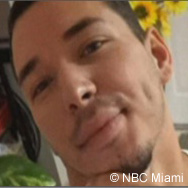
Usaamah Abdullah Rahim was an alleged homegrown extremist and supporter of ISIS from Roslindale, Massachusetts.“Criminal Complaint,” U.S. District Court, District of Massachusetts, June 12, 2015, http://wpri.com/read-criminal-complaint-against-nicholas-rovinski/. Rahim reportedly met and planned with alleged co-conspirators Nicholas Alexander Rovinski and David Daoud Wright, his nephew, to behead controversial American political activist and critic of Islam Pamela Geller in New York.Elizabeth Barber, “Men charged in Boston beheading plot plead not guilty in court,” Reuters, June 19, 2015, http://www.reuters.com/article/2015/06/19/us-massachusetts-police-idUSKBN0OZ14020150619. Geller and her organization famously hosted a draw the prophet Muhamad contest in Garland, Texas, on May 3, 2015.
In January 2015, Rahim, Wright, and Rovinski began discussing ISIS’s calls to carry out attacks in the United States. By the following month, Rahim and Wright began forming plots and recruiting additional conspirators to carry out an attack. Wright studied a jihadist manual called “How to Survive in the West,” which provided instructions on how to develop a sleeper terrorist cell, and conducted Internet searches on firearms, tranquilizers, and other weapons.“Second Superseding Indictment,” U.S. District Court, District of Massachusetts, February 15, 2017, https://www.investigativeproject.org/documents/case_docs/3231.pdf. In late May 2015, Rahim ordered three large fighting knives on Amazon.“Criminal Complaint,” U.S. District Court, District of Massachusetts, June 12, 2015, http://wpri.com/read-criminal-complaint-against-nicholas-rovinski/. Court documents released in April 2016 reveal that Rahim had been in contact with ISIS operative Junaid Hussain. Hussain reportedly communicated directly with Rahim, who then passed along the instructions to his conspirators to kill Geller. They allegedly planned to kill her in while she was home in New York for the July 4th holiday.Adam Goldman, “Well-known ISIS operative instructed Americans to kill organizer of Muhammad cartoon contest, prosecutors reveal,” Washington Post, April 21, 2016, https://www.washingtonpost.com/news/post-nation/wp/2016/04/21/well-known-isis-operative-instructed-americans-to-kill-organizer-of-muhammad-cartoon-contest-prosecutors-reveal/; “Two Individuals Charged in Superseding Indictment with Conspiring to Commit Acts of Terrorism Transcending National Boundaries,” U.S. Department of Justice, April 21, 2016, https://www.justice.gov/opa/pr/two-individuals-charged-superseding-indictment-conspiring-commit-acts-terrorism-transcending.
In early 2015, Wright put Rahim in contact with Zulfi Hoxha, an ISIS supporter who Wright had met online and who planned to travel abroad to join ISIS. Wright and Rahim helped to fund Hoxha’s plane ticket to Istanbul, Turkey, by selling Rahim’s laptop on Craigslist. Hoxha departed for Istanbul on April 6, 2015, from where he traveled to Syria to join ISIS. After Hoxha’s departure, Rahim remained in contact with him for a few days through communications on an encrypted messaging app. After Hoxha began training at an ISIS camp, Rahim continued to receive updates on his activities by communicating with Hussain.Seamus Hughes et al., “A New American Leader Rises in ISIS,” Atlantic, January 13, 2018, https://www.theatlantic.com/international/archive/2018/01/isis-america-hoxha/550508/.
Despite Hussain’s direct instructions to carry out an attack against Geller, Rahim instead attempted to attack members of the Boston police force. On June 2, 2015, he was shot and killed after he attempted to attack FBI agents and members of the Boston police force in Roslindale, Massachusets, with one of the large fighting knives he had purchased from Amazon.Adam Goldman, “Well-known ISIS operative instructed Americans to kill organizer of Muhammad cartoon contest, prosecutors reveal,” Washington Post, April 21, 2016, https://www.washingtonpost.com/news/post-nation/wp/2016/04/21/well-known-isis-operative-instructed-americans-to-kill-organizer-of-muhammad-cartoon-contest-prosecutors-reveal/; “Read: Criminal complaint against Nicholas Rovinski,” WPRI, June 12, 2015,http://wpri.com/read-criminal-complaint-against-nicholas-rovinski/. That morning, Wright had encouraged Rahim to carry out an attack against authorities and become a martyr for ISIS.Maria Cramer, “Man convicted in terrorism plot sentenced to 28 years,” Boston Globe, December 19, 2017, https://www.bostonglobe.com/metro/2017/12/19/man-convicted-terrorism-plot-sentenced-years/dUGdLtwm0DlIKiJQvqfObM/story.html. After Rahim’s death, both Wright and Rovinski were arrested.Adam Goldman, “Well-known ISIS operative instructed Americans to kill organizer of Muhammad cartoon contest, prosecutors reveal,” Washington Post, April 21, 2016, https://www.washingtonpost.com/news/post-nation/wp/2016/04/21/well-known-isis-operative-instructed-americans-to-kill-organizer-of-muhammad-cartoon-contest-prosecutors-reveal/; “Two Individuals Charged in Superseding Indictment with Conspiring to Commit Acts of Terrorism Transcending National Boundaries,” U.S. Department of Justice, April 21, 2016, https://www.justice.gov/opa/pr/two-individuals-charged-superseding-indictment-conspiring-commit-acts-terrorism-transcending.
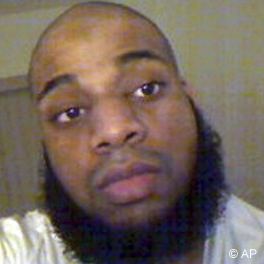
Christopher Lee Cornell is a convicted domestic terrorist from Ohio who sought to carry out an attack on behalf of ISIS.Max Willens, “Christopher Lee Cornell Indicted On Federal Charges In Connection With Alleged Bomb Threat,” International Business Times, January 21, 2015, http://www.ibtimes.com/christopher-lee-cornell-indicted-federal-charges-connection-alleged-bomb-threat-1790768. On August 1, 2016, Cornell pled guilty to one count of attempting to kill government employees, one count of possession of a firearm in furtherance of a crime of violence, and one count of attempting to provide material support to a designated foreign terrorist organization.“Cincinnati-Area Man Pleads Guilty to Terrorism Charges,” U.S. Department of Justice, August 1, 2016, https://www.justice.gov/opa/pr/cincinnati-area-man-pleads-guilty-terrorism-charges. He was sentenced to 30 years in prison on December 5, 2016.Douglas Ernst, “‘Allah is in control, not this judge!’: Capitol terror plotter receives 30-year sentence,” Washington Times, December 5, 2016, http://www.washingtontimes.com/news/2016/dec/5/christopher-l-cornell-capitol-terror-plotter-sente/. As he exited the court, Cornell yelled, “Allah is in control, not this judge!”Associated Press, “Ohio man accused of plot to attack U.S. Capitol shouts support for Allah in court,” Chicago Tribune, December 5, 2016, http://www.chicagotribune.com/news/nationworld/ct-us-capitol-plot-20161205-story.html?14809651491461.
Shortly after being sentenced, Cornell filed notice that he planned to appeal the court’s decision, a right which he waived as a part of the plea deal he signed in August 2016.Kevin Grasha, “Court: No appeal for Green Twp. man who admitted terror plot,” Citizen Times, May 12, 2017, http://www.citizen-times.com/story/news/2017/05/12/court-no-appeal-green-twp-man-who-admitted-terror-plot/101594284/. His appeal was dismissed by a Federal Appeals Court in May 2017.“Judges dismiss appeal for Green Township man convicted in terror plot,” WCPO Cincinnati, May 15 2017, http://www.wcpo.com/news/crime/christopher-lee-cornell-judges-dismiss-appeal-for-green-township-man-convicted-in-terror-plot.
Cornell’s documented history with violent extremism dates back to November 2014, when he told an FBI informant that he planned to attack the U.S. Capitol with pipe bombs and firearms.“Criminal Complaint,” United States District Court, Southern District of Ohio, January 14, 2015, http://www.justice.gov/sites/default/files/opa/press-releases/attachments/2015/01/15/cornell_complaint.pdf. In May 2015, a federal grand jury also charged Cornell with attempting to provide material support to ISIS for his attempted operation on behalf of the terror group.“Cincinnati-Area Man Charged with Attempting to Provide Material Support to ISIL,” U.S. Department of Justice, May 7, 2015, https://www.justice.gov/opa/pr/cincinnati-area-man-charged-attempting-provide-material-support-isil. According to Cornell’s plea agreement, he planned to carry out his attack during the State of the Union address on January 20, 2015.“Cincinnati-Area Man Pleads Guilty to Terrorism Charges,” U.S. Department of Justice, August 1, 2016, https://www.justice.gov/opa/pr/cincinnati-area-man-pleads-guilty-terrorism-charges. Cornell later told local media that he wanted to shoot President Barack Obama in the head.Dan Sewell, “US Capitol plot suspect pleads guilty to 3 counts in Ohio,” Associated Press, August 1, 2016, http://bigstory.ap.org/article/128828825bd8408f9ccc076c0fbe34c0/us-capitol-plot-suspect-due-court-plea-hearing.
Authorities charged Cornell with attempted murder of government officials, solicitation to commit a crime of violence, and possession of a firearm in connection with a crime of violence.“Capitol Bomb Suspect Christopher Lee Cornell Pleads Not Guilty,” NBC News, January 22, 2015, http://www.nbcnews.com/news/us-news/capitol-bomb-suspect-christopher-lee-cornell-pleads-not-guilty-n291436.
On January 22, 2015, Cornell pled not guilty to all charges.“Capitol Bomb Suspect Christopher Lee Cornell Pleads Not Guilty,” NBC News, January 22, 2015, http://www.nbcnews.com/news/us-news/capitol-bomb-suspect-christopher-lee-cornell-pleads-not-guilty-n291436. Following a mental evaluation, Cornell was judged to be competent to stand trial in April 2016.Associated Press, “Federal judge: Christopher Cornell is competent to stand trial,” WCPO Cincinnati, April 18, 2016, http://www.wcpo.com/news/local-news/federal-judge-christopher-cornell-is-competent-to-stand-trial;
Dan Sewell, “Mental evaluation ordered for suspect in U.S. Capitol attack plot,” Washington Times, November 10, 2015, http://www.washingtontimes.com/news/2015/nov/10/judge-to-order-mental-evaluation-of-ohio-terror-pl/. In March of 2016, Cornell claimed to have renounced extremism, asserting in a letter written to his family that he is “just a kid who suffered from some problems, that [sic] made some bad decisions and stupid mistakes.”“US Capitol plotter Christopher Lee Cornell sentenced,” BBC News, December 5, 2016, http://www.bbc.com/news/world-us-canada-38215955. Cornell also wrote in his letter that he “hope[s] they [his family] can soon see the change in me… give me the help I need and allow me to get a second chance.”“US Capitol plotter Christopher Lee Cornell sentenced,” BBC News, December 5, 2016, http://www.bbc.com/news/world-us-canada-38215955.
While in prison, however, Cornell continued to urge others to “fight against the disbelieving people of America,” according to prosecutors.“US Capitol plotter Christopher Lee Cornell sentenced,” BBC News, December 5, 2016, http://www.bbc.com/news/world-us-canada-38215955. Cornell has also posted online after bypassing security on a prison computer. According to authorities, Cornell posted on an undisclosed website, soliciting help to exact retribution against his FBI informant.“US Capitol plotter Christopher Lee Cornell sentenced,” BBC News, December 5, 2016, http://www.bbc.com/news/world-us-canada-38215955.
Cornell is incarcerated at Federal Correctional Institution, Fairton, in New Jersey.Federal Bureau of Prisons, Inmate Search for Christopher Cornell, https://www.bop.gov/inmateloc/.
Attempted domestic terrorist: Accused of attempting to attack the U.S. Capitol in support of ISIS.
Told FBI informant he got a “thumbs up” from al-Awlaki before al-Awlaki’s “martyrdom”
Attempted domestic terrorist, Ohio: Arrested in January 2015 for allegedly planning with an undercover FBI agent to set off pipe bombs at the U.S. Capitol building in Washington, D.C. on behalf of ISIS. Cornell pled guilty in August 2016 to attempting to kill government employees, possession of a firearm intended for violent crime, and attempting to provide material support to a designated foreign terrorist organization. He was sentenced to 30 years in prison followed by a lifetime of supervised released.
Converted to Islam in or around June or July of 2014. Cornell claimed to attend the Masjid Abubakr Siddique mosque in Cincinnati, but mosque members questioned by the FBI after his arrest did not recognize his picture. Cornell’s parents said that they believe their son was coerced into the plot, calling him in media interviews a “mama’s boy” whose “best friend is his kitty cat.” Cornell had recently become interested in Islam, according to his father. He had previously protested at a September 11 memorial in 2013, asserting that the attacks were actually carried out by the secretive Freemasons fraternity. Cornell began posting pro-jihadist messages on social media in the summer of 2014, attracting the FBI’s attention. Cornell later told the FBI that AQAP propagandist Anwar al-Awlaki had approved of his terrorist plot, though Awlaki was killed in a drone strike three years before Cornell’s conversion.
(Estimated age at conversion: 19-20)
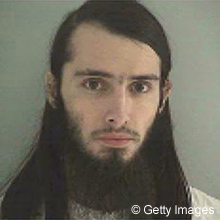
Massachusetts native David Daoud Wright is an alleged homegrown extremist and supporter of ISIS.“Criminal Complaint,” U.S. District Court, District of Massachusetts, June 12, 2015, http://wpri.com/read-criminal-complaint-against-nicholas-rovinski/. He is the nephew and alleged co-conspirator of Usaamah Abdullah Rahim, a terror suspect who was shot and killed by members of the Boston police force in early June 2015.“Criminal Complaint,” U.S. District Court, District of Massachusetts, June 12, 2015, http://wpri.com/read-criminal-complaint-against-nicholas-rovinski/. Wright plotted to behead controversial blogger Pamela Geller along with two co-conspirators, Rahim and Nicholas Alexander Rovinski.Elizabeth Barber, “Men charged in Boston beheading plot plead not guilty in court,” Reuters, June 19, 2015, http://www.reuters.com/article/2015/06/19/us-massachusetts-police-idUSKBN0OZ14020150619.
Wright reportedly met Rovinski through Facebook and began communicating with him sometime in 2014.“Criminal Complaint,” U.S. District Court, District of Massachusetts, June 12, 2015, http://wpri.com/read-criminal-complaint-against-nicholas-rovinski/. In January 2015, Wright, Rovinski, and Rahim started to discuss ISIS’s calls to carry out attacks in the United States. By the following month, Wright and Rahim began forming plots and recruiting additional conspirators to carry out an attack. Wright studied a jihadist manual called “How to Survive in the West,” which provides instructions on how to develop a sleeper terrorist cell. He also drafted organizational documents for their intended operation, and conducted Internet searches on firearms, tranquilizers, and other weapons.“Second Superseding Indictment,” U.S. District Court, District of Massachusetts, February 15, 2017, https://www.investigativeproject.org/documents/case_docs/3231.pdf.
During this time, Wright also communicated with Zulfi Hoxha, an ISIS supporter who Wright met through a video game website called Steam and had been communicating with since at least November 2014. The two bonded over their support for ISIS on Skype and the messaging site Paltalk, where they participated pro-ISIS chatrooms and shared ISIS propaganda materials with each other, including execution videos and the magazine Dabiq. Before Hoxha left to join ISIS in Syria in April 2015, Wright and Rahim helped him to raise money for his plane ticket.Seamus Hughes et al., “A New American Leader Rises in ISIS,” Atlantic, January 13, 2018, https://www.theatlantic.com/international/archive/2018/01/isis-america-hoxha/550508/.
By May 2015, Wright, Rovinski, and Rahim decided to kill Pamela Geller, who was known for hosting a cartoon contest to draw the prophet Muhammad in Garland, Texas in early May 2015.“Criminal Complaint,” U.S. District Court, District of Massachusetts, June 12, 2015, http://wpri.com/read-criminal-complaint-against-nicholas-rovinski/; “Second Superseding Indictment,” U.S. District Court, District of Massachusetts, February 15, 2017, https://www.investigativeproject.org/documents/case_docs/3231.pdf. Wright later admitted that he had been aware of public statements issued by ISIS calling upon supporters to find and behead Geller.“Criminal Complaint,” U.S. District Court, District of Massachusetts, June 12, 2015, http://wpri.com/read-criminal-complaint-against-nicholas-rovinski/. The three men made plans to carry out the beheading by communicating in person as well as online and over the phone. In one recorded phone conversation with Rovinski, Wright extensively praised ISIS and criticized the U.S. law prohibiting the provision of material support to foreign terrorist organizations.“Criminal Complaint,” U.S. District Court, District of Massachusetts, June 12, 2015, http://wpri.com/read-criminal-complaint-against-nicholas-rovinski/. Wright also obstructed justice by informing Rahim how to rid his cellphone and computer of their histories to prevent authorities from finding any incriminating evidence.“Criminal Complaint,” U.S. District Court, District of Massachusetts, June 12, 2015, http://wpri.com/read-criminal-complaint-against-nicholas-rovinski/.
On June 2, 2015, Wright encouraged Rahim to carry out an attack against authorities and become a martyr for ISIS. Rahim was shot and killed by Boston police officers hours later after he attempted to attack them with a machete.Maria Cramer, “Man convicted in terrorism plot sentenced to 28 years,” Boston Globe, December 19, 2017, https://www.bostonglobe.com/metro/2017/12/19/man-convicted-terrorism-plot-sentenced-years/dUGdLtwm0DlIKiJQvqfObM/story.html. Upon learning of the incident, Wright immediately deleted data from his laptop and call records from his cell phone that showed that he had spoken to Rahim that morning.“Massachusetts Man Convicted of Supporting ISIS and Conspiring to Murder U.S. Citizens,” U.S. Department of Justice, October 18, 2017, https://www.justice.gov/opa/pr/massachusetts-man-convicted-supporting-isis-and-conspiring-murder-us-citizens.
The FBI arrested Wright following the incident on June 2. In an interview with the FBI in Massachusetts, Wright told agents that he believed that the actions of ISIS, including attacks on civilians, were justified.“Criminal Complaint,” U.S. District Court, District of Massachusetts, June 12, 2015, http://wpri.com/read-criminal-complaint-against-nicholas-rovinski/. He was charged with conspiracy to provide material support to a foreign terrorist organization, conspiracy to obstruct justice, and obstruction of justice.“Massachusetts Man and Rhode Island Man Indicted for Conspiracy to Provide Support to Islamic State,” U.S. Attorney’s Office, District of Massachusetts, June 18, 2015, http://www.justice.gov/usao-ma/pr/massachusetts-man-and-rhode-island-man-indicted-conspiracy-provide-support-islamic-state. On June 19, 2015, he pled not guilty to the charges.Associated Press, “Men accused of conspiring in terror plot due in federal court in Boston for detention hearing,” Fox News, June 19, 2015, http://www.foxnews.com/us/2015/06/19/men-accused-conspiring-in-terror-plot-due-in-federal-court-in-boston-for/. On February 15, 2017, Wright was given a superseding indictment with an additional charge of conspiracy to commit acts of terrorism transcending national boundaries.“Second Superseding Indictment,” U.S. District Court, District of Massachusetts, February 15, 2017, https://www.investigativeproject.org/documents/case_docs/3231.pdf. Wright was convicted of the charges on October 18, 2017, and sentenced to 28 years in federal prison on December 19.“Massachusetts Man Convicted of Supporting ISIS and Conspiring to Murder U.S. Citizens,” U.S. Department of Justice, October 18, 2017, https://www.justice.gov/opa/pr/massachusetts-man-convicted-supporting-isis-and-conspiring-murder-us-citizens; Maria Cramer, “Man convicted in terrorism plot sentenced to 28 years,” Boston Globe, December 19, 2017, https://www.bostonglobe.com/metro/2017/12/19/man-convicted-terrorism-plot-sentenced-years/dUGdLtwm0DlIKiJQvqfObM/story.html.
Plotted to behead controversial blogger Pamela Geller along with two co-conspirators, his uncle Usaamah Abdullah Rahim and Nicholas Alexander Rovinski. Helped fund the plane ticket of Zulfi Hoxha, which Hoxha used to travel abroad to join ISIS.
Shared the ISIS propaganda magazine Dabiq and ISIS propaganda videos, including one which depicted a Jordanian pilot being burned alive, with Zulfi Hoxha on Skype and Paltalk messenger.
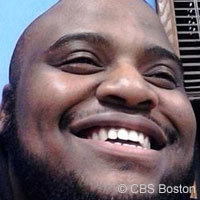
Jonas Edmonds is a U.S. citizen who was arrested in March 2015 and charged with conspiring to provide support and resources to ISIS.“US Army National Guard Soldier and his Cousin Arrested for Conspiring to Support Terrorism (ISIL),” United States Department of Justice, March 26, 2015, http://www.justice.gov/opa/pr/us-army-national-guard-soldier-and-his-cousin-arrested-conspiring-support-terrorism-isil. According to the FBI, Jonas—along with his cousin and roommate Hasan Edmonds—conspired to facilitate Hasan’s travel to fight with ISIS in Syria.“US Army National Guard Soldier and his Cousin Arrested for Conspiring to Support Terrorism (ISIL),” United States Department of Justice, March 26, 2015, http://www.justice.gov/opa/pr/us-army-national-guard-soldier-and-his-cousin-arrested-conspiring-support-terrorism-isil;
Mattathias Schwarts, “How Dangerous Were the Edmonds Cousins?,” New Yorker, March 31, 2015, http://www.newyorker.com/news/news-desk/how-dangerous-were-the-edmonds-cousins. The defendants allegedly planned for Jonas to carry out acts of violence in the United States once Hasan was abroad. The domestic attack was allegedly planned to take place at a U.S. military facility in northern Illinois, where Hasan has previously trained for the Illinois National Guard.“US Army National Guard Soldier and his Cousin Arrested for Conspiring to Support Terrorism (ISIL),” United States Department of Justice, March 26, 2015, http://www.justice.gov/opa/pr/us-army-national-guard-soldier-and-his-cousin-arrested-conspiring-support-terrorism-isil.
Edmonds and his cousin were arrested before an attack took place. The pair initially pled not guilty in April 2015, but switched to a guilty plea in December of that year.“Aurora Cousins Face Sentencing For Terror Plot on Guard Base,” CBS Chicago, September 20, 2016, http://chicago.cbslocal.com/2016/09/20/aurora-cousins-face-sentencing-for-terror-plot-on-guard-base/. Edmonds was sentenced to 21 years in prison on September 20, 2016.Jason Meisner, “National Guard member and cousin given long prison terms for terror plot,” Chicago Tribune, September 20, 2016, http://www.chicagotribune.com/news/local/breaking/ct-terror-plot-joliet-armory-met-20160920-story.html.
Attempted domestic terrorist, Illinois: Arrested in March 2015 after plotting with his cousin Hasan Edmonds to attack the Joliet Armory, a military installation in Illinois. Edmonds also conspired to facilitate Hasan Edmonds’s travel to ISIS-held territory, according to the U.S. Department of Justice. Edmonds pled guilty to conspiring to provide material support to a foreign terrorist organization and one count of making a false statement to a law enforcement official.
Converted to Islam with other members of his family in or around 2005, according to Tiffany Edmonds, Jonas Edmonds’s aunt. He admitted he had been radicalized online.
(Estimated age at conversion: 19-20)
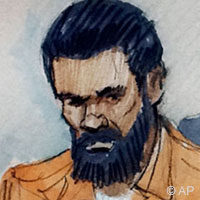
On June 17, 2015, the FBI charged Fareed Mumini with attempting to stab an FBI agent who arrived at Mumini’s home in Staten Island, New York, with a search warrant. A criminal complaint against Mumini alleged he planned to attack U.S. law enforcement after failing to join ISIS in Syria.Benjamin Mueller, “New Jersey Man Is Charged with Planning to Aid ISIS,” New York Times, June 18, 2015, http://www.nytimes.com/2015/06/19/nyregion/new-jersey-man-is-charged-with-planning-to-aid-isis.html?_r=0. Mumini is reportedly friends with other individuals who have also allegedly attempted to join ISIS, including Samuel Rahamin Topaz and Munther Omar Saleh.Benjamin Mueller, “New Jersey Man Is Charged with Planning to Aid ISIS,” New York Times, June 18, 2015, http://www.nytimes.com/2015/06/19/nyregion/new-jersey-man-is-charged-with-planning-to-aid-isis.html?_r=0. Police investigating Mumini witnessed multiple meetings between Mumuni and Saleh in May 2015. Authorities also recorded phone conversations between the two men.Shimon Prokupecz and Laura Ly, “FBI agent attacked during search of NYC home in ISIS-related case,” CNN, June 17, 2015, hhttp://www.cnn.com/2015/06/17/us/new-york-isis-investigation/. Mumini pleaded guilty and was sentenced to 17 years in prison.“Staten Island Man Sentenced to 17 Years’ Imprisonment for Attempted Murder of A Federal Officer,” U.S. Attorney’s Office – Eastern District of New York, April 26, 2018, https://www.justice.gov/usao-edny/pr/staten-island-man-sentenced-17-years-imprisonment-attempted-murder-federal-officer.
Saleh was arrested separately on June 7, 2015, and was charged with attempting to learn how to build a pressure-cooker bombBenjamin Mueller, “New Jersey Man Is Charged with Planning to Aid ISIS,” New York Times, June 18, 2015, http://www.nytimes.com/2015/06/19/nyregion/new-jersey-man-is-charged-with-planning-to-aid-isis.html?_r=0. and plotting to blow up New York City landmarks.Benjamin Mueller, “New Jersey Man Is Charged with Planning to Aid ISIS,” New York Times, June 18, 2015, http://www.nytimes.com/2015/06/19/nyregion/new-jersey-man-is-charged-with-planning-to-aid-isis.html?_r=0. He pleaded guilty, and was sentenced to 18 years in federal prison.“Queens Man Sentenced to 18 Years’ Imprisonment for ISIS-Directed Terrorist Attacks in New York City,” U.S. Attorney’s Office – Eastern District of New York, February 6, 2018, https://www.justice.gov/usao-edny/pr/queens-man-sentenced-18-years-imprisonment-isis-directed-terrorist-attacks-new-york.
On February 9, 2017, Mumini pleaded guilty to conspiring to and attempting to provide material support to ISIS, assaulting and conspiring to assault federal officers, and attempted murder of federal officers.“Two New York City Residents Pleaded Guilty to All Charges in Terrorism Case,” U.S. Department of Justice – Office of Public Affairs, February 10, 2017, https://www.justice.gov/opa/pr/two-new-york-city-residents-pleaded-guilty-all-charges-terrorism-case. On April 26, 2018, he was sentenced to 17 years in federal prison.“Staten Island Man Sentenced to 17 Years’ Imprisonment for Attempted Murder of A Federal Officer,” U.S. Attorney’s Office – Eastern District of New York, April 26, 2018, https://www.justice.gov/usao-edny/pr/staten-island-man-sentenced-17-years-imprisonment-attempted-murder-federal-officer.
Mumini is currently incarcerated at Brooklyn Metropolitan Detention Center in New York, with a scheduled release date of December 10, 2029.“FAREED MUMUNI,” Find an Inmate – Federal Bureau of Prisons, accessed April 7, 2021, https://www.bop.gov/inmateloc/.
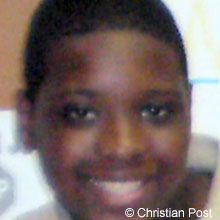
Extremists: Their Words. Their Actions.
Fact:
On April 3, 2017, the day Vladimir Putin was due to visit the city, a suicide bombing was carried out in the St. Petersburg metro, killing 15 people and injuring 64. An al-Qaeda affiliate, Imam Shamil Battalion, claimed responsibility.
Get the latest news on extremism and counter-extremism delivered to your inbox.